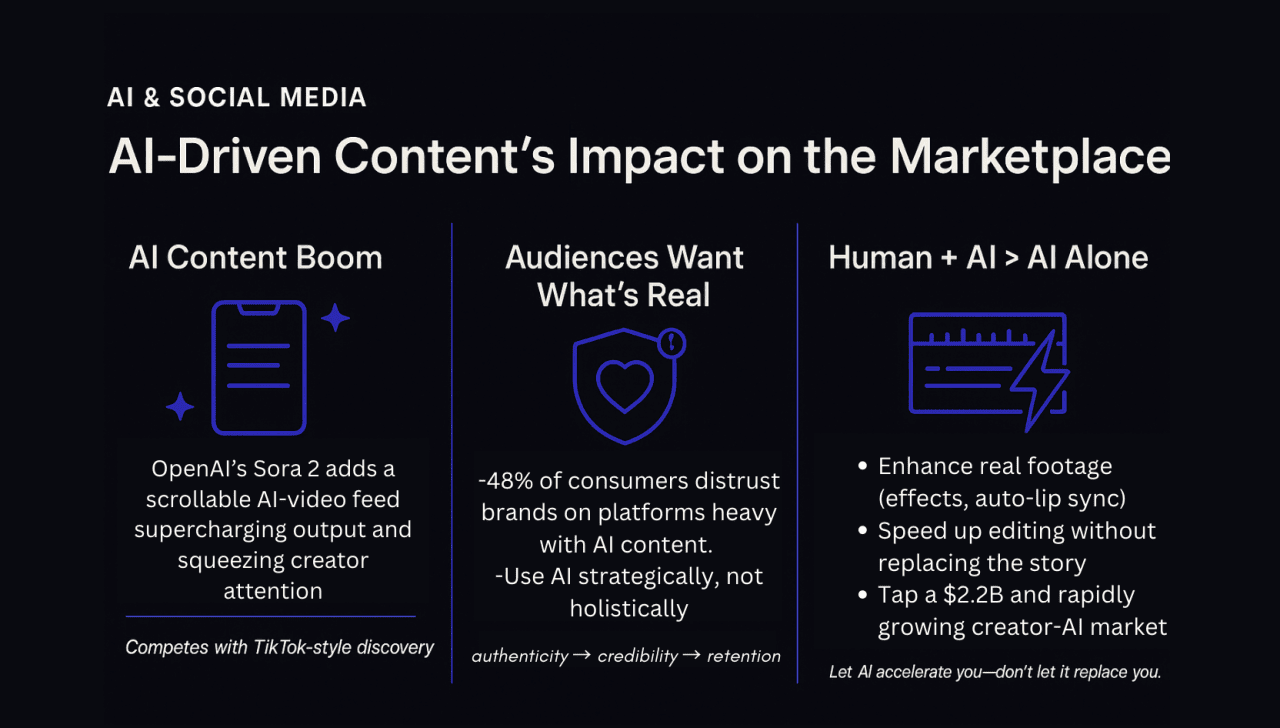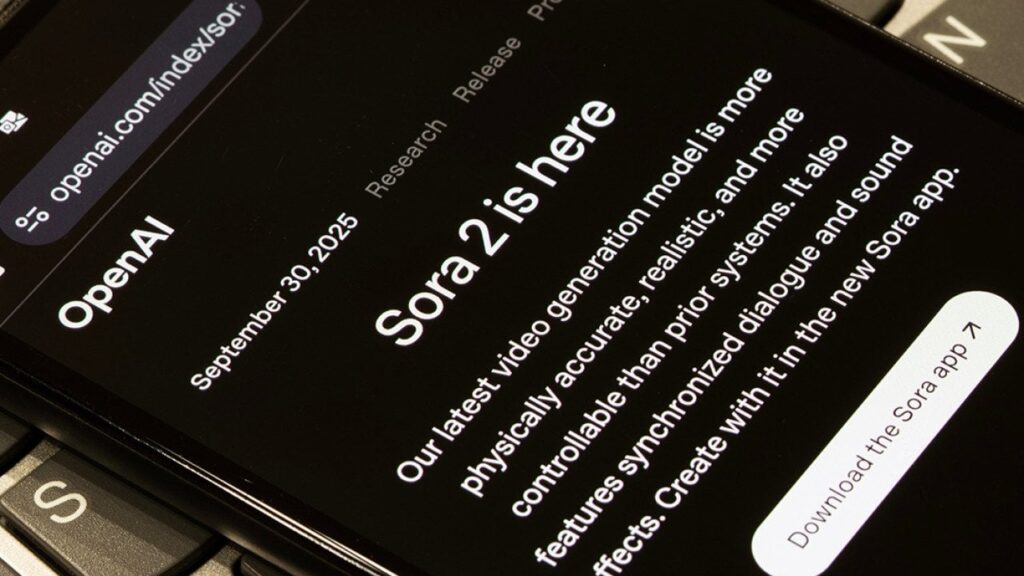Tada image // Shutterstock
Social media is in crisis, and it’s no exaggeration to say that AI content creation is at the root of what’s shaking the industry.
Naysayers argue that this is the end of human creativity, with all the cultural and economic implications this would imply. Meanwhile, proponents are pushing the AI hype to extreme levels, proclaiming this as a new era of growth and engagement.
As with most binary arguments, the reality lies somewhere in between. To understand the current state of social media content in the AI-first market, the team at Magic Hour takes a deep dive into data and trends.
Why AI content is so impactful
AI content has been around for several years, but it’s only in recent months that the true scope of its power has become noticeable, especially for content creators.
Most recently, OpenAI’s launch of its Sora 2 video generation platform sent shockwaves through the creative realm. Studios and agencies are starting up in Hollywood. The ease with which existing IP or even individual actor likenesses can be emulated is both surprising and concerning.
But the social aspect of this launch is perhaps more important, as OpenAI’s tools will move closer to the realm currently dominated by TikTok. Including a scrollable feed of AI-generated video clips in the Sora app gives users another reason to use it, but it also creates challenges for creators competing for an increasingly smaller share of viewers’ attention.
Why it’s not the end for human creators
The idea that AI content will completely replace human-produced output is far-fetched. This ultimately comes down to issues of reliability and trustworthiness.
No matter how eye-catching and engaging AI images and videos are, they lack the personal connection that people crave. Nielsen research also found that 48% of consumers do not trust companies that promote their products on platforms that rely heavily on AI content.
This means there is an incentive to use AI strategically rather than holistically, both in terms of user engagement and positive brand building.

magic hour
Balance efficiency and reliability
AI can be very useful for social media content creators. Production time is shortened and costs are reduced. Additionally, audiences are increasingly hungry for content, and this technology enables even the smallest teams to meet this demand.
So what is the right way to implement AI into your social media content creation workflow without interfering with the reliability of the process?
Primarily, the question of how AI tools will be used needs to be carefully considered. The fastest way to pump out content isn’t the most personal. If you ask ChatGPT or Google Gemini to create a prompt to feed into Sora 2 or Veo 3, and then slot the resulting clip into the feed without modification, the results will be far from authentic.
A smarter strategy is to treat AI tools as such. In other words, it’s a tool that creators can use to develop their talents and reach their goals faster without making sacrifices. Already a $2.2 billion market, and with rapid growth expected, there are significant benefits to adoption.
For example, credibility on social media is often determined by the connection viewers feel with the people on screen. Therefore, when you use the generation tools to make adjustments to existing images or video clips, this is preserved. Add effects to enhance your footage, engage automatic lip-syncing to join in on the meme, speed up editing with automation, and more, the options are diverse and the end result never feels half-baked.
Should social media creators use AI content tools?
There’s no getting away from the fact that social media creators have to walk a fine line when using AI tools to aid their workflows. If you go too far, you risk alienating the audience you’ve spent years building. If you don’t use these tools at all, you risk being overtaken by other, less passive creators.
Despite all the advances we’ve seen so far, AI is still in its infancy. Embracing it now to amplify human creativity also means building skills and knowledge that will help it further develop and become ingrained in our lives in the future.
This story was produced by Magic Hour and reviewed and distributed by Stacker.
![]()



